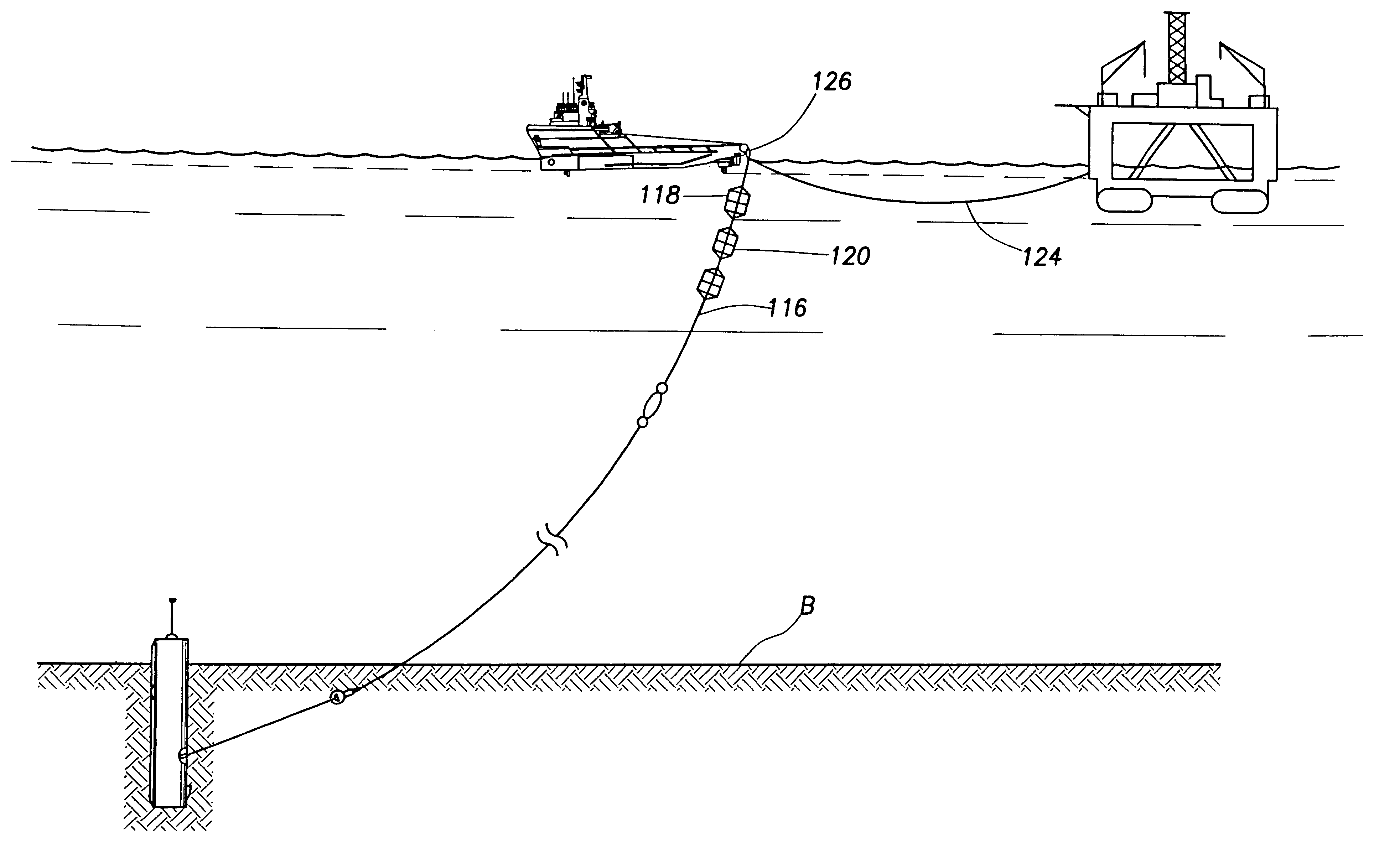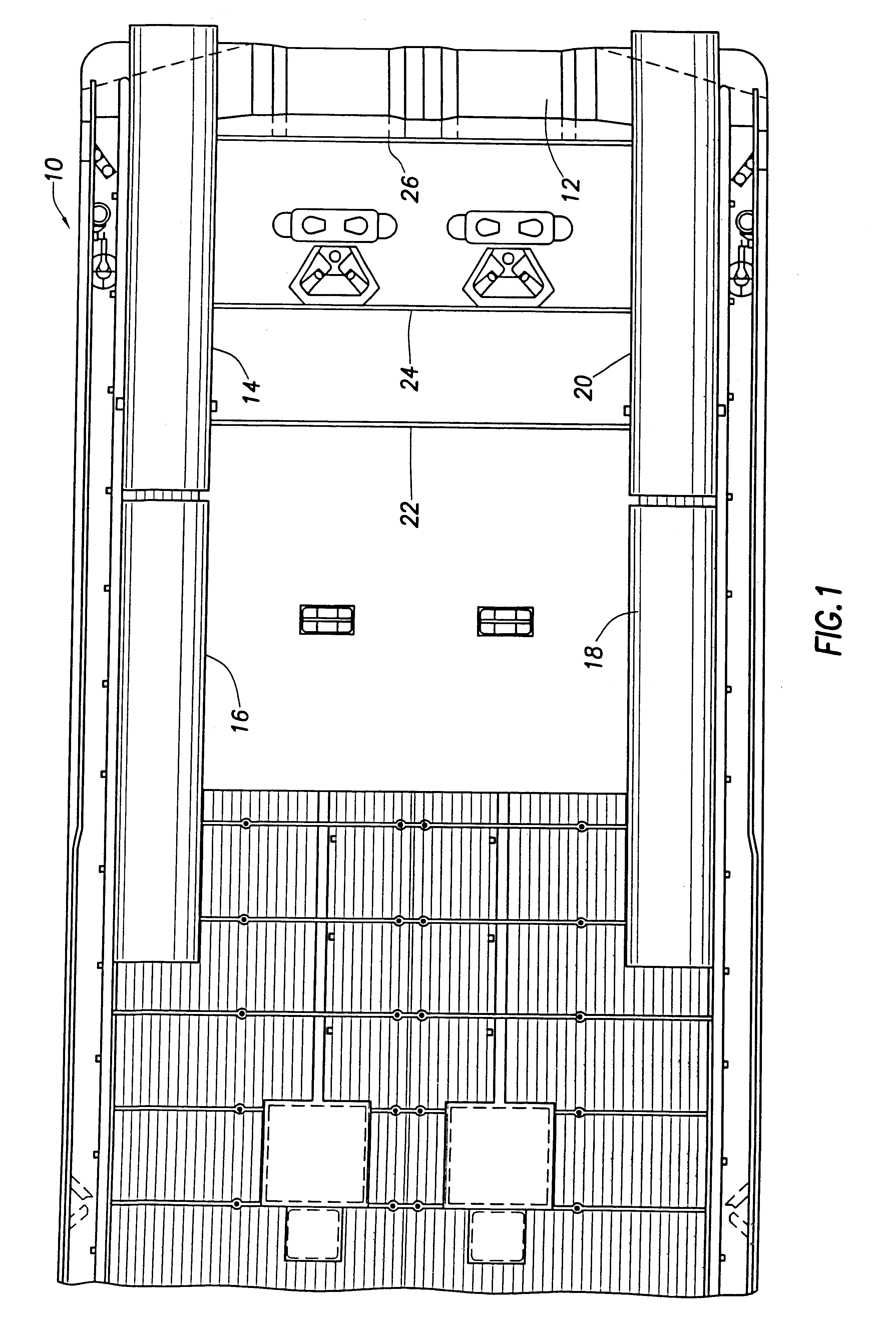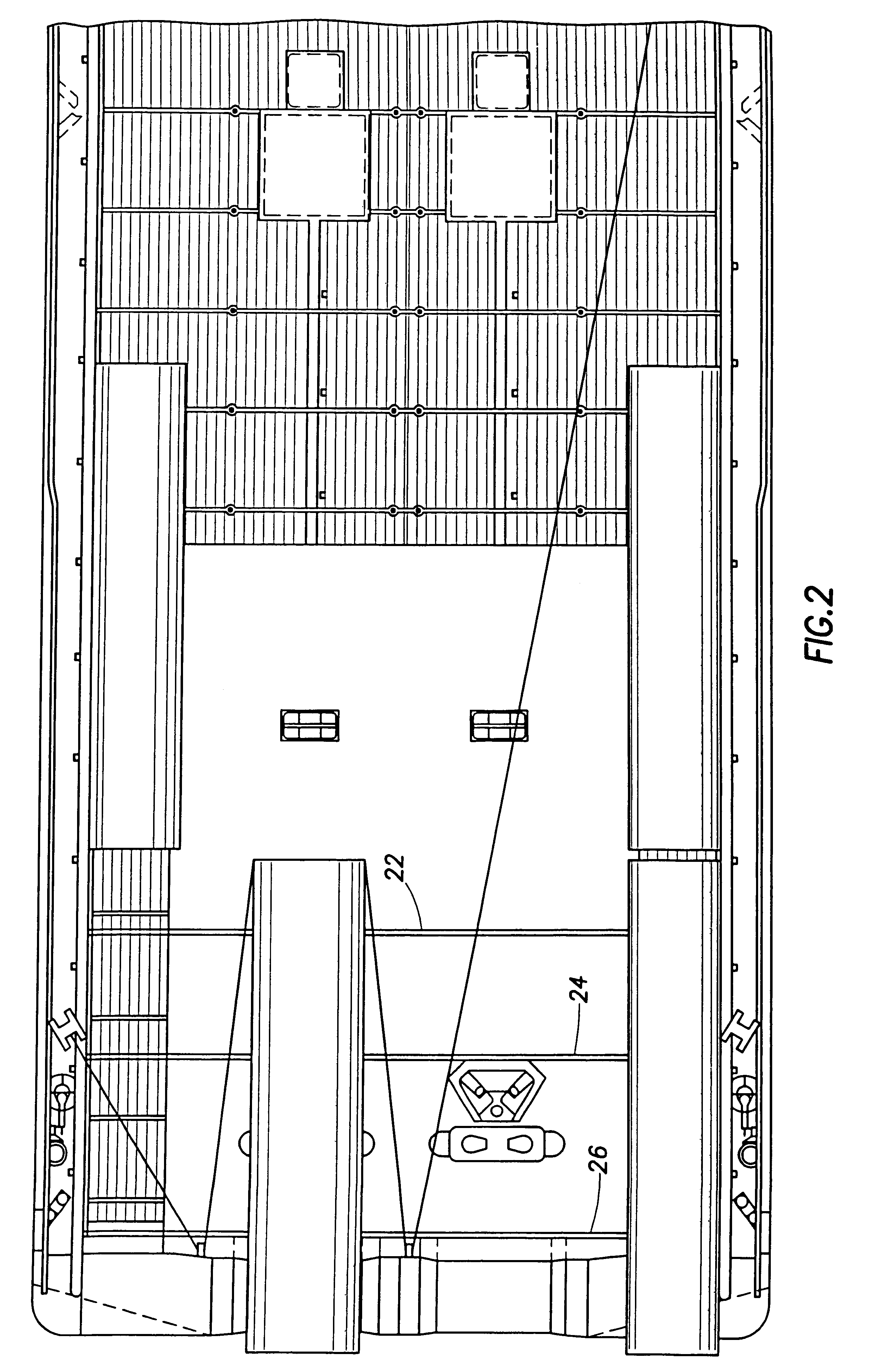Method and apparatus for suction anchor and mooring deployment and connection
a technology of suction anchors and moorings, which is applied in mechanical equipment, transportation and packaging, and vessel construction. it can solve the problems of heavy and bulky anchors and peripheral equipment that can swing, strike and damage other equipment in the immediate vicinity of the a-, and significant hazards to the safety of workers
- Summary
- Abstract
- Description
- Claims
- Application Information
AI Technical Summary
Benefits of technology
Problems solved by technology
Method used
Image
Examples
Embodiment Construction
Referring now to the drawings and first to FIG. 1, the stern deck of an anchor handling vessel, also referred to therein to an anchor handling vessel, is shown generally at 10 and incorporates a stern roller 12 over which suction anchor piles and other apparatus is launched. The stern of the anchor handling vessel is pitted to receive 4 suction anchor piles shown at 14, 16, 18 and 20 which are secured to the anchor handling vessel by individual anchor handling assemblies which are shown in greater detail in FIGS. 3-6. The deck of the vessel is provided with transverse beams or rails 22, 24 and 26, one which being shown in FIG. 6 at 22. Track roller assemblies are provided as shown in FIGS. 3, 4 and 5 with one of the track roller assemblies, shown generally at 28 in FIG. 3, having parallel track members 30, 32 and 34 which are interconnected by transverse structural members 36. Roller assemblies 38 and 39 are mounted to the outer parallel structural members 30 and 34 and to the trans...
PUM
 Login to View More
Login to View More Abstract
Description
Claims
Application Information
 Login to View More
Login to View More - R&D
- Intellectual Property
- Life Sciences
- Materials
- Tech Scout
- Unparalleled Data Quality
- Higher Quality Content
- 60% Fewer Hallucinations
Browse by: Latest US Patents, China's latest patents, Technical Efficacy Thesaurus, Application Domain, Technology Topic, Popular Technical Reports.
© 2025 PatSnap. All rights reserved.Legal|Privacy policy|Modern Slavery Act Transparency Statement|Sitemap|About US| Contact US: help@patsnap.com



